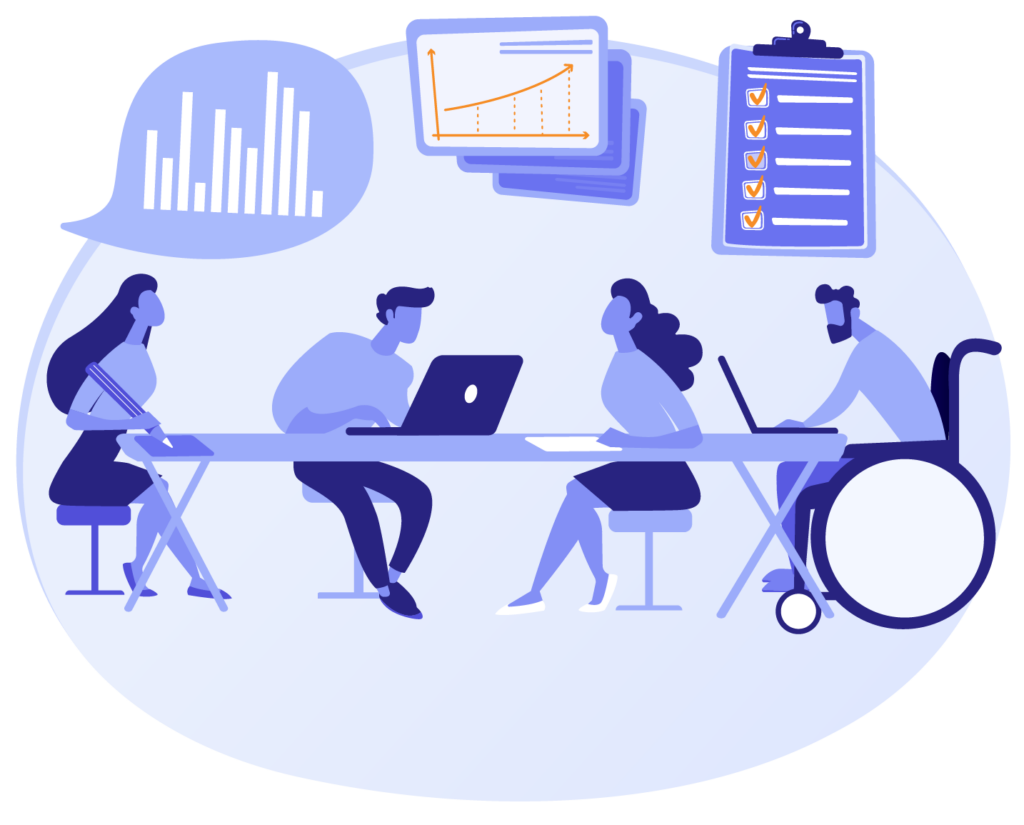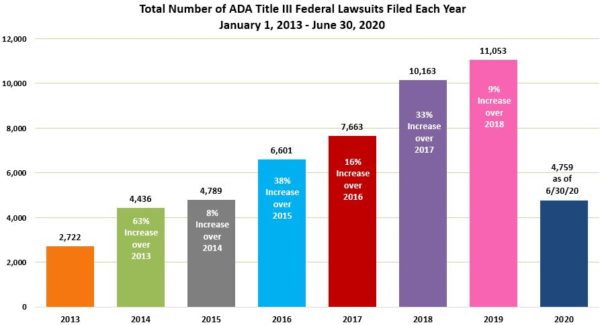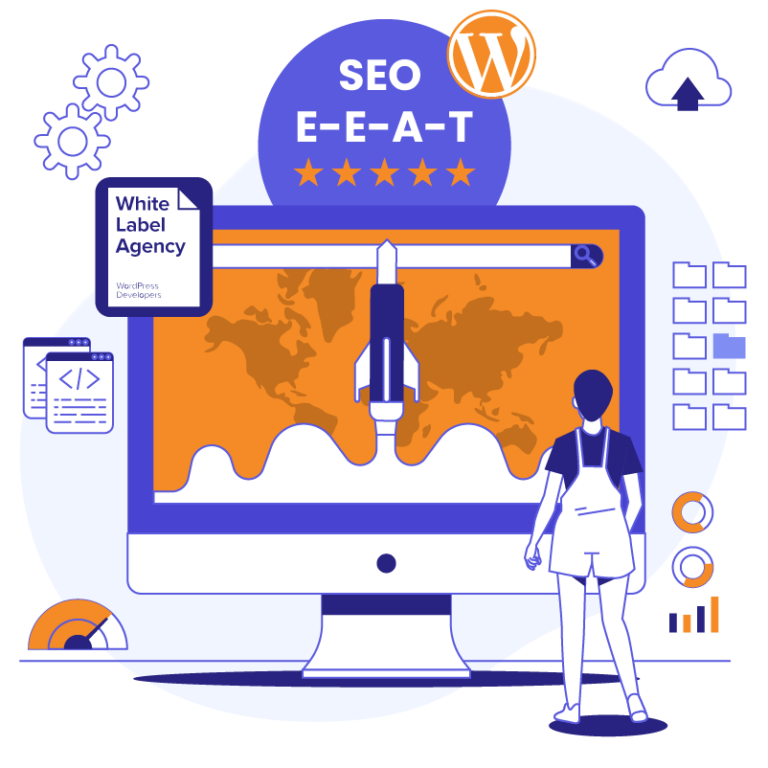If you’ve been in the web development space for the past five years it is a rather safe assumption that you have heard about the Americans with Disabilities Act (ADA). You’re probably also aware that it is a really important aspect to work into the design and development process for any website to meet compliance. Maybe you have even heard or been exposed to litigation involving a public-facing website found not to be compliant.
So what is ADA compliance and what do you need to do as an agency to get it?
Federal ADA Lawsuit Trends
ADA Title III federal lawsuits filed have been steadily increasing year-over-year and settlement costs alone can be few thousand all the way up to millions, as has been seen with prestigious universities such as Harvard and MIT.
While the threat of going to court would grab the attention of most website owners and put them on edge, the more important point to obtain ADA compliance is to make the internet more accessible for everyone using it. That includes the roughly 1-in-5 Americans with a disability.
The internet becomes more entwined with our daily routines as each day passes and to not accommodate all those using it truly puts those individuals at a great disadvantage.
Imagine not being able to learn the same lessons as your peers because of no closed-captioning on a remote-learning lecture, having a seizure induced from an overly flashy animation not being blocked, or having a screen reader spitting out gibberish on a job description you want to apply for.
These are all very real frustrations and obstacles for those living with disabilities. Striving for usability by all potential website users is the real goal of the ADA initiatives and should be for all agency owners as well.
Agencies Meeting the Accessibility Challenge Head-On
I think most would agree that a more accessible website makes sense for all, but what exactly are the standards that need to be met? What are the exact steps to get them? And how do you tell if the website is indeed compliant?
As an agency serving other agencies, we have heard all the questions above and many more around ADA. For those that may not be so familiar with the subject, ADA can be summarized as a set of rules, behaviors, code standards, and design guidelines, that are meant to allow people with disabilities to effectively use websites.
The actual rules and standards involving ADA as it applies to websites can be found through some “light” reading of the following compliance areas:
- ADA Title III
- WCAG 2.1
- Section 508
- EAA/EN30548
- ACA/AODA
After you have spent a few hours reviewing the lists in the compliance areas above, it is very likely that you have a slight headache and way more questions than answers. At least that is the feeling our team had when first diving down the rabbit hole of ADA website compliance.
After some time digesting everything, we narrowed the options down to three approaches. We’ll explore each of these further just below:
- Inhouse or Outsource ADA Compliant Design/Development
- Auditing Services
- Artificial Intelligence (AI) ADA Service Solution
1. In-house or Outsource ADA Compliant Design/Development
This involves compiling a master design and development list of best practices (e.g. make sure all images have an alt tag filled out) and installing an ADA WordPress plugin to evaluate content.
This solution works but is highly dependent on both the designer and developer being experts on the compliance requirements. Another negative is that the website needs to be reviewed for any changes in compliance regulations or for any new content added to the website over time.
So while this was a good first step to offer our partners interested in ADA compliance, it was not a robust solution for them and their clients to future-proof their sites.
2. Auditing Services
Another option we came across but did not try or recommend was an auditing service.
Auditing services offer the appeal of subject matter experts in the areas of ADA compliance. But the price tags of $5,000 – $50,000 per year per site make it a non-starter for the majority of the clients our agency partners work with.
3. Artificial Intelligence (AI) ADA Service Solution
In the latter half of last year, we started to see a few companies claiming to offer a solution for ADA that simply involved the website owner installing a snippet of code that allowed the company’s technology to fully scan and continuously monitor the site for ADA compliance.
Not only does their technology find and report on ADA compliance issues, but it also uses artificial intelligence and their proprietary user-interface widget to adjust the website to the specific needs of the disabled person using it. The majority of the time this is done with no need for any design or code changes. This was the option we found the most interesting and affordable for the agencies we work with.
The White Label Agency Approach to ADA Compliance
Currently we are still testing the Artificial Intelligence ADA option with a service provided by accessiBe. The installation is as simple as downloading a plugin to your WordPress site and then setting up an account and registering the live domain with accessiBe.
The site will automatically display a small icon in the bottom corner for all users. Clicking the icon displays a widget overlay allowing the user to set the accessibility profile they desire or to hide the interface completely.
In the first 24 – 48 hours the service is installed a full scan of the website will take place and the company claims after the initial scan the site will be compliant. They even offer an Accessibility Statement of Compliance for any users that want to check for themselves.
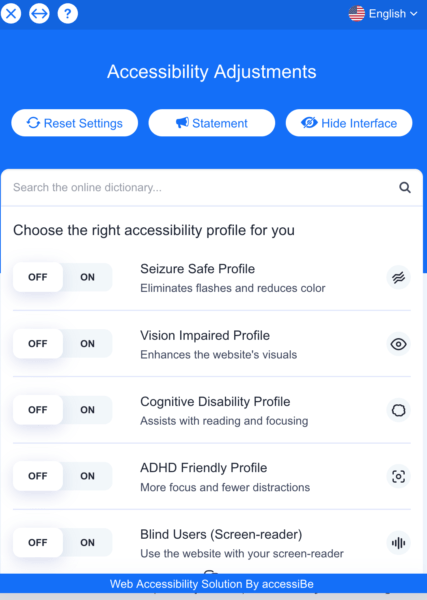
White Label Agency has been using the service on this website for about two months thus far and we are happy with the results. After installation and the initial scan, we jumped from an accessibility score of 78 up to 96 based on a Lighthouse performance audit.
Lighthouse is an open-source, automated tool for improving the quality of web pages. It measures overall performance, best practices, SEO, and of course Accessibility. It is not affiliated with accessiBe, as far as we are aware.
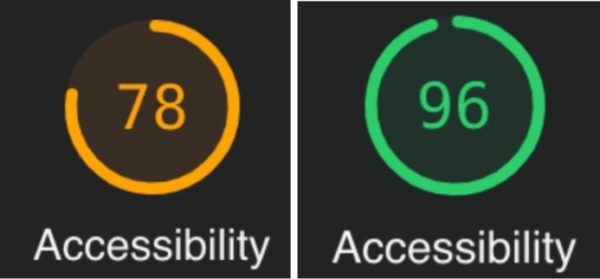
One of the cooler features of the service is its image recognition and OCR AI technology. accessiBe scans all images on the site, and wherever there is alternative text (Alt tags) missing, it will extract the embedded text using OCR and learn the objects that comprise the image using IRIS.
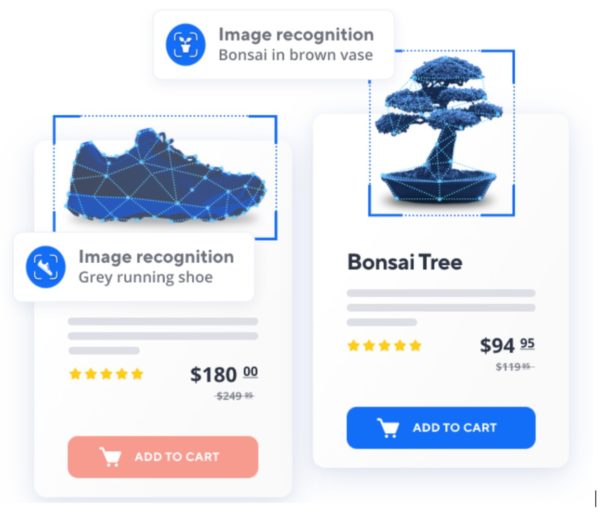
Then, accessiBe will automatically provide accurate and elaborate alternative text to any of these images. When a blind user enters a site, their screen reader will rely on these descriptions to communicate what is on the page.
Even with the best developer and content providers on your team, it is nice to know there is a safety net for a missed ALT tag here or there.
The types of changes and updates being discussed are not necessarily difficult for a designer or developer to make, but it does require a lot of time upfront and someone to be aware of all content changes and their impacts on ADA compliance as the site changes.
accessiBe runs a new scan every 24 hours, searching for new and revised content to fix, so your team of resources can focus on other more important tasks.
And the price for such peace of mind is reasonable, they charge an annual fee that is well-aligned with other WordPress plugins or maintenance services. You can learn more about their pricing packages here.
In Conclusion
Making the web more accessible for all helps not only users of websites, but also benefits the businesses looking to serve them.
While the myriad of best practices and compliance checklists can make even the most patient Agency owner want to throw in the towel, new improvements in testing services and compliance solutions provide a clearer path forward.
We hope this article has helped you on that path.
For now, White Label Agency is going to continue testing the service offered by accessiBe and will be listening closely to our partners as the landscape around ADA compliance continues to evolve.
If you have any questions or would like to learn more about building a more accessible internet for all, please reach out to our team.
